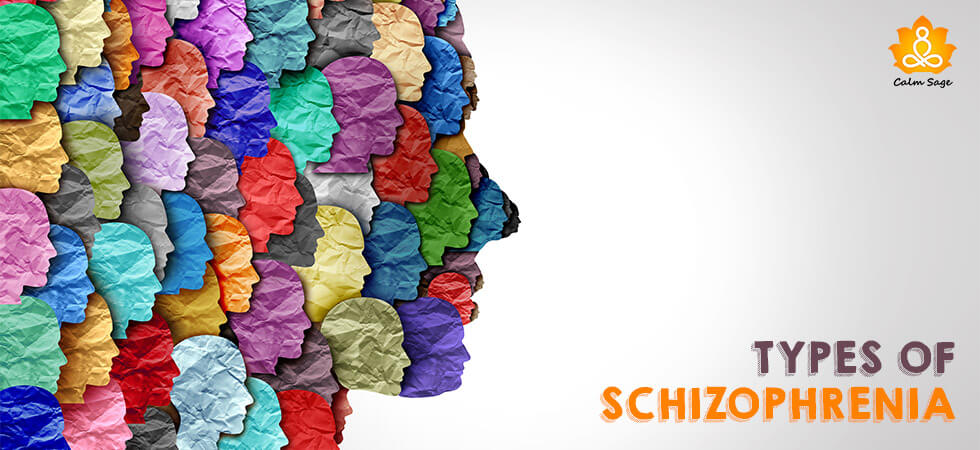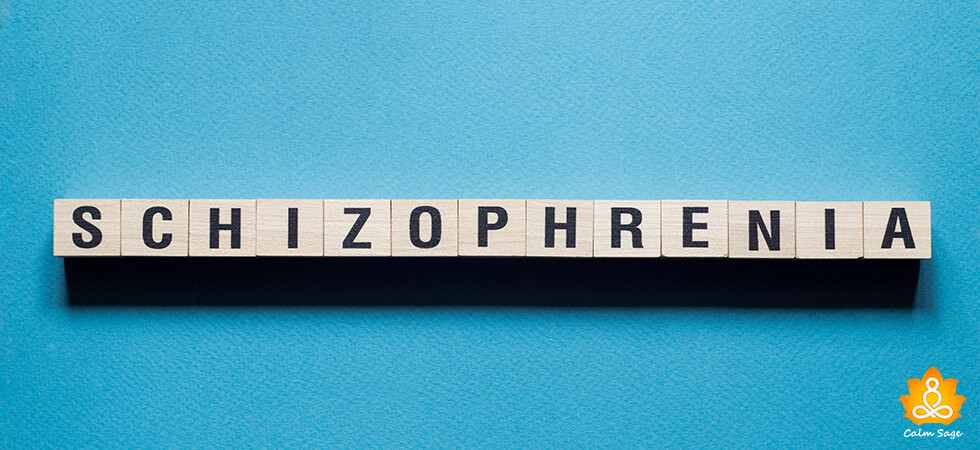What Are The Different Types Of Schizophrenia?

Schizophrenia is a mental health condition that affects your emotions and your ability to think rationally and clearly. Did you know there are 5 types of schizophrenia? In this article we will discuss the various types of schizophrenia in detail.
Before we do that let’s quickly look at what schizophrenia as a whole looks like…
Schizophrenia is a serious disorder of the mind which disables a man to think, feel and act in a clear and rational manner. A schizophrenic person will have thoughts and experiences which are completely away from reality.
Although the cause and cure of this mental health condition have not been found yet, the symptoms can be managed so that you can return to your normal life.
Symptoms Of Schizophrenia:
- Hallucinations
- Delusions
- Paranoia
- Social isolation
- Disturbed thoughts
- Disorganized speech
- Movement disorder
- Concentration issues
- Struggle with completing daily tasks
- Lack of pleasure
- A flat affect
Also read: Understanding The Three Phases Of Schizophrenia And Their Symptoms
What Are The Different Types Of Schizophrenia?
There are 5 types of schizophrenia. Even though these subtypes are now not being diagnosed as a singular disorder but knowing them individually can help in easy diagnoses and planning the right treatment.
Let’s look at the different forms of schizophrenia…
1. Paranoid Schizophrenia
Paranoid schizophrenia is characterized by experiencing auditory hallucinations and persecutory delusions. People with paranoid schizophrenia feel like someone is constantly conspiring against them.
Since experts believed that paranoia is a positive symptom, paranoid schizophrenia is now not being diagnosed separately.
Symptoms of Paranoid schizophrenia
- Hallucinations
- Delusions
- Concentration issues
- Impulse control is difficult
- A flat affect
- Echolalia
- Forming words and speech becomes difficult
Also read: 10 Common Myths and Facts About Schizophrenia
2. Disorganized Schizophrenia
Disorganized schizophrenia is just like the name suggests, disorganization in the thought process of the affected person. It is also known as hebephrenic subtype of schizophrenia. It is mostly seen in people falling in the age group of 15 to 25.
People with disorganized schizophrenia have almost zero facial expression, there is almost no expression of emotion in their intonation (voice) or their mannerism.
Symptoms of disorganized schizophrenia
- Communication and speech related issues
- Disorganized thoughts
- Reactions away from normal
- Daily activities are achieved with much difficulty
- The flat affect
3. Catatonic schizophrenia
Catatonic schizophrenia is one of the rarest of all types of schizophrenia. It affects the physical movements. Somedays you might feel like you can’t move at all and some other days you might move freely.
Another thing that points towards catatonia is that you might not talk that much and whenever you are talking, you’ll probably copy someone else’s statements and sometimes their movements too.
Symptoms of catatonic schizophrenia
- Immobility, stupor-like
- Mimicking actions
- Echolalia (mimicking speech)
- Mutism (loss of speech)
- Repeated purposeless movements
4. Residual schizophrenia
Residual schizophrenia can be seen in people who have a history of schizophrenia. In the residual subtype there are no positive symptoms present. The only symptoms present are the negative ones. The intensity of the previous symptoms is also reduced.
There might be a disorganized thought process but it’s mild in nature. Residual schizophrenia is not being diagnosed anymore because the symptoms wax and wane from time to time.
Therefore, residual schizophrenia is no longer diagnosable.
- A flat affect
- Difficulties in completing Psychomotor activities
- Poor hygiene
- Slow speech
5. Undifferentiated schizophrenia
Undifferentiated schizophrenia looks like your mind cannot decide which it wants to mess you up with. It is categorized by mixed symptoms from each type of schizophrenia. A person with undifferentiated schizophrenia can have some symptoms from paranoid schizophrenia and some from catatonia.
It is basically a mixture of symptoms from each subtype of schizophrenia. There are no particular symptoms of undifferentiated schizophrenia. It can be anything from hallucinations to slow speech to disorganized thoughts to word salad.
Endnote
Schizophrenia is a serious mental health condition which when diagnosed easily can have a positive impact on managing the symptoms. Knowing the various types of schizophrenia can make it very easy for us to identify.
It’s true that the subtypes of schizophrenia are not being diagnosed separately. But having knowledge of all the various types of schizophrenia can help in stopping the condition from going downhill and in managing our symptoms and emotions.
I hope you found this article interesting! If you have any questions related to the various types of schizophrenia do let me know in the comment section below. Also, tell us what else you would like to know about schizophrenia.
Thanks for reading.
Take care and stay safe.




















